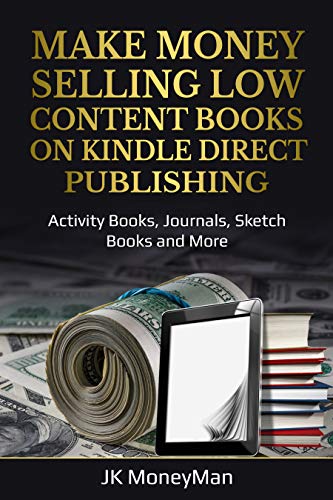

If I have lots of keywords (tested as you have done), I’ll list those words in one place–title/sub, or keyword field–but not both. Ian, here are my thoughts and experience, FWIW: I separate my keywords with commas. I have to say, lovely site design, nice branding and very much a blog I’ll be adding to my RSS reader in the next 2 mins! I think we are all fed up of the fly-by-night gurus and candy-floss marketing out there, you seem to be - only professional. I follow quite a few publishing blogs and this is the first time I’ve found yours, via this very article.

The KDP help files are vague to say the least and in their example they don’t even use commas which I thought was poor, and support is even more vague.
Kindle direct publishing journals full#
My book title is E-commerce Get It Right! Essential Ecommerce Step by Step Guide to Selling and Marketing Products Online.īecause I’ve used the 2 main keywords ‘e-commerce’ and ‘ecommerce’ in the title, do I need these again in the keywords box?Īnd taking popular searches from the Amazon website autocomplete search box, such as ‘ecommerce marketing’, do I need the full phrase in the keyword box or just marketing, seo, webite, etc.Įxample 1 ecommerce, ecommerce marketing, ecommerce seo, ecommerce websiteĮxample 2: ecommerce, marketing, seo, website I have a few Q’s David about KDP keywords. Photo credit: Melody Kramer via photopin cc
Kindle direct publishing journals how to#
self distribution eBook distribution.)Īlso see my article titled How to Choose Keywords to Sell Your eBook. If you do change them, make sure they are consistent across other formats (eBook, print, audio).Īmazon's Kindle keyword field in KDP is one of the main reasons why I advocate distributing your eBook via KDP rather than through a third-party distributor.

(Personally, I haven’t had a problem repeating words but I’m also not certain how much it helps.) One reason I can see not repeating title or sub title words in the keywords field is that you get only so many high-value opportunities. Perhaps Amazon doesn’t want us clogging up search results with irrelevant results, or perhaps it gives those that do repeat keywords an unfair advantage. Yes, this runs counter to SEO best practices where some repetition can actually help your rankings. Do not repeat words already included in your title, subtitle or category and other key metadata fields.Learn more here at the bottom of the Selecting Browse Categories page. Romance, science fiction & fantasy and erotica are three examples. Certain fiction sub-categories require publishers to include specific keywords so that the book will show up in that category.This also includes words that refer to sales rank (“best selling”) and marketing terms like “free” or “on sale.” Avoid referencing anything that is unrelated to your book’s content. If you use the name of a competitive book, or a popular author, your eBook could get removed from the store, or worse. The number one rule for choosing keywords is don’t try to game the system.But whatever you call it, it works the same across every search engine-enter a string of words and you get relevant results. It’s also sometimes called a search term. (I have never experienced a character limit for Amazon Kindle listing keywords.)Ī keyword can be more than a single word it can actually be a phrase like, for example, modern architecture or true crime. The only other major eBook store that offers this book discovery tool is Barnes & Noble and their store allows a maximum of 100 characters. As a consequence, Amazon enforces strict rules about their use and has been known to take swift action against books (“take downs”) when these rules are violated.Įach Kindle book listing on KDP can have a maximum seven keywords, separated by commas. And like any effective tool it attracts its fair share of misuse and abuse. Keywords are one of the most effective ways publishers can promote Kindle eBooks on Amazon.


 0 kommentar(er)
0 kommentar(er)
